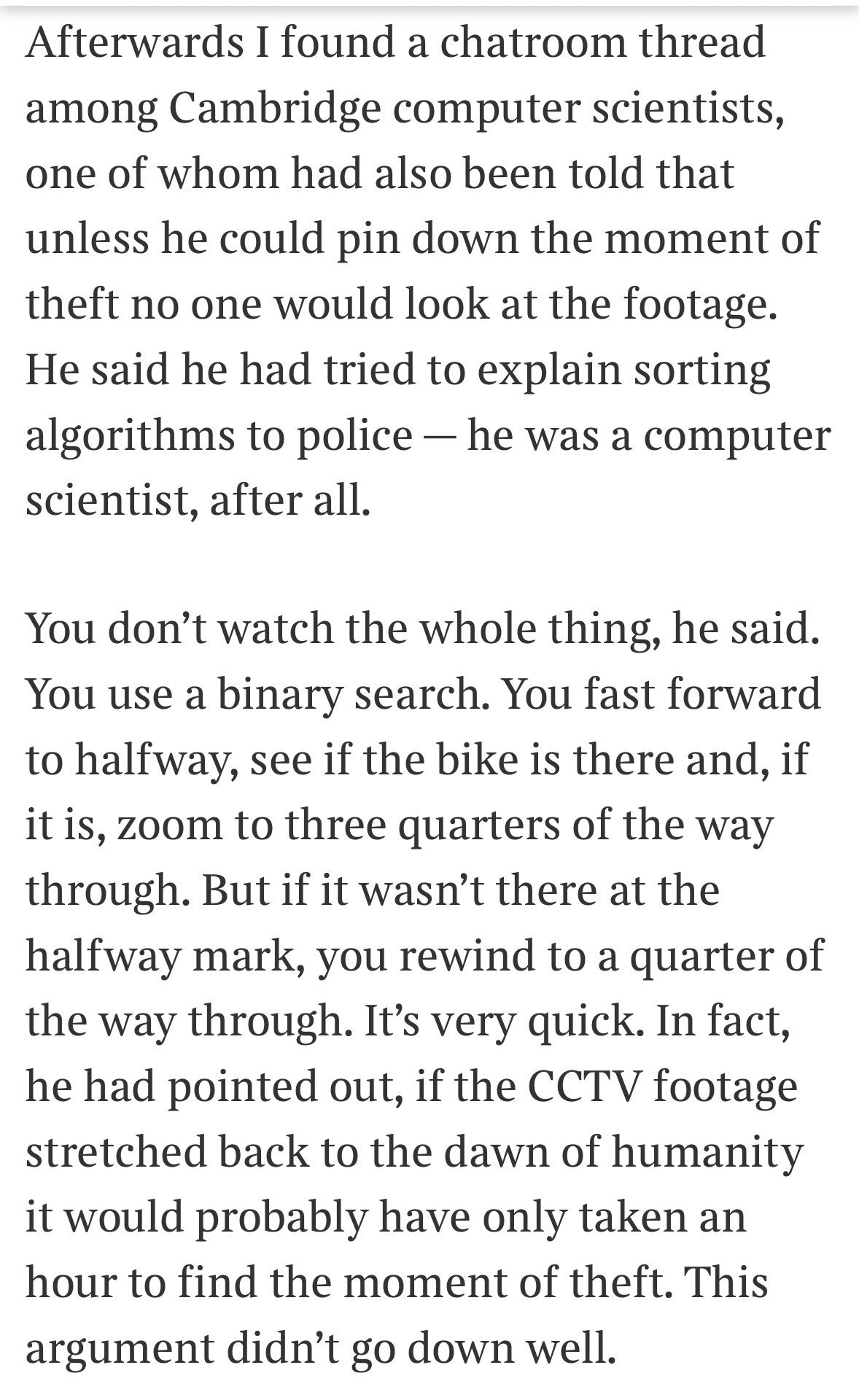I do not get why it would work in that case. I assume the scenario is someone with a bike coming, doing theft, then leaving with the same bike.
Therefore there will be a period without bike, then a period with bike, then a period without bike again.
Let's assume there is no bike on the particular moment viewed. How do you know whether it occured before or after the theft? If you make the wrong decision, you get stuck on an endless binary search.. Unless you take note at each timestamp where you made the decision, draw a tree of timestamps, and go back the tree if your search is fruitless but that's much more complicated than what this post says.
